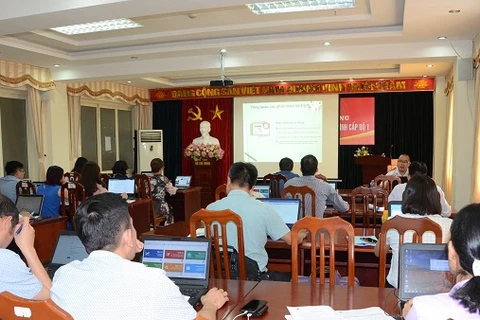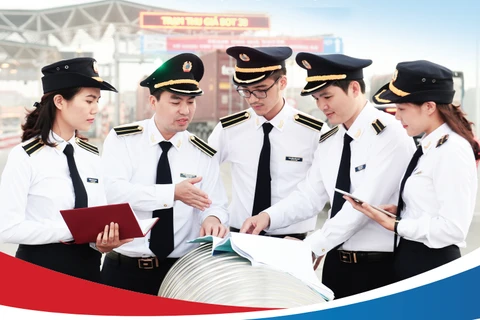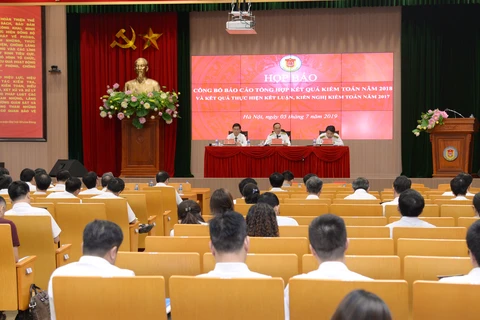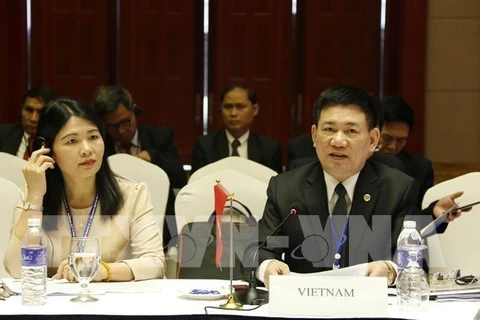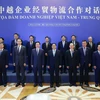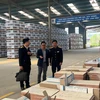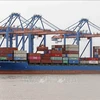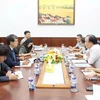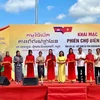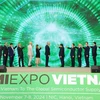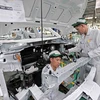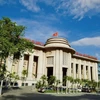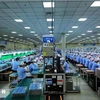Hanoi (VNA) – The fourth Industrial Revolution has basically changed audit methods by applying advanced technologies such as digital signature, digitalisation, and audit data processing software.
Audit activities in the paperless environment, together with the introduction of a number of new digital tools, has been a challenge to State audit agencies in countries around the globe.
One of the successful models in applying technology in auditing operations is the Organisation of Latin American and Caribbean Supreme Audit Institutions (OLACEFS) with the use of digital signature and e-receipt as well as the digitalisation of data to improve the quality, efficiency and transparency in the use of public financial resources.
In recent years, the organisation has focused on seeking measures to strengthen the application of technology in auditing activities.
At its 28th General Assembly in 2018, the OLACEFS adopted the Buenos Aires Declaration affirming the role of State Audit Institutes (SAI) in the new technology era and commitments in applying new technology in the process of supervising the public finance.
At the 29th General Assembly in October this year, the organisation continued to highlight the significance of new technology in auditing activities.
The majority of the OLACEFS’ member SAIs agreed that a number of newly-emerged tools, such as e-signature and e-receipt, play an important role in administrative activities and auditing operations. However, the tools have still been on consideration in some SAIs.
The use of e-signature and e-receipt are conditions to ensure the legality of e-transactions, allowing them to be carried out in the electronic environment, prevent the forging of signatures as well as fake documents. The digitalisation of documents facilitates analysing data, and archiving and classifying information, thus saving time and reducing administrative procedures.
However, many member SAIs of the OLACEFS showed their concern about the security and safety of data as well as legal synchrony during the application of the tools, along with the technology foundation and infrastructure.
Meanwhile, in Vietnam, the State Audit of Vietnam (SAV)’s orientation in technological application, especially in audit activities, is reflected in its development strategies and guiding documents, proving its determination in integration efforts, actively seizing opportunities, fully tapping advantages, and mitigating any negative impact from Industry 4.0.
IT application in audit activities also reflects the SAV’s pioneering role in its capacity as the Chair of the Asian Organisation of Supreme Audit Institutions (ASOSAI) for the 2018-2021 tenure. Apart from directing ASOSAI’s activities, the SAV has gradually affirmed its position with international audit organisations and ASOSAI members regarding reform via specific commitments and actions.
One goal set for the 2026-2030 period is to conduct regular annual audits of budget balances at ministries, centrally-run agencies, provinces, and centrally-run cities. Audits of operations, specialised audits, information technology audits, and audits of the environment will be promoted, with these to account for 30-40 percent of all audits each year. Attention will be also paid to detecting loopholes in mechanisms, policies, and laws.
The SAV will work to move from conventional auditing procedures to digital auditing based on big data, with the support of AI in a proactive manner, and improve auditing capacity to meet the requirements of the Government’s management of administration work and supervision work by the National Assembly and People’s Councils.
Regarding international cooperation, professional integration will be the key pillar, towards the goal of quickly narrowing the gap in professional capacity between the SAV and counterparts in the region and the world. Multilateral cooperation will be geared towards raising the SAV’s position in the international community through joining in the implementation and drafting of common auditing standards and rules.
Meanwhile, bilateral cooperation will focus on the sharing of experience and technology to enhance the SAV’s capacity. The SAV will organise a various coordinated audits, send or receive auditors for training, and conduct cross-assessments with regional and global supreme audit agencies./.

